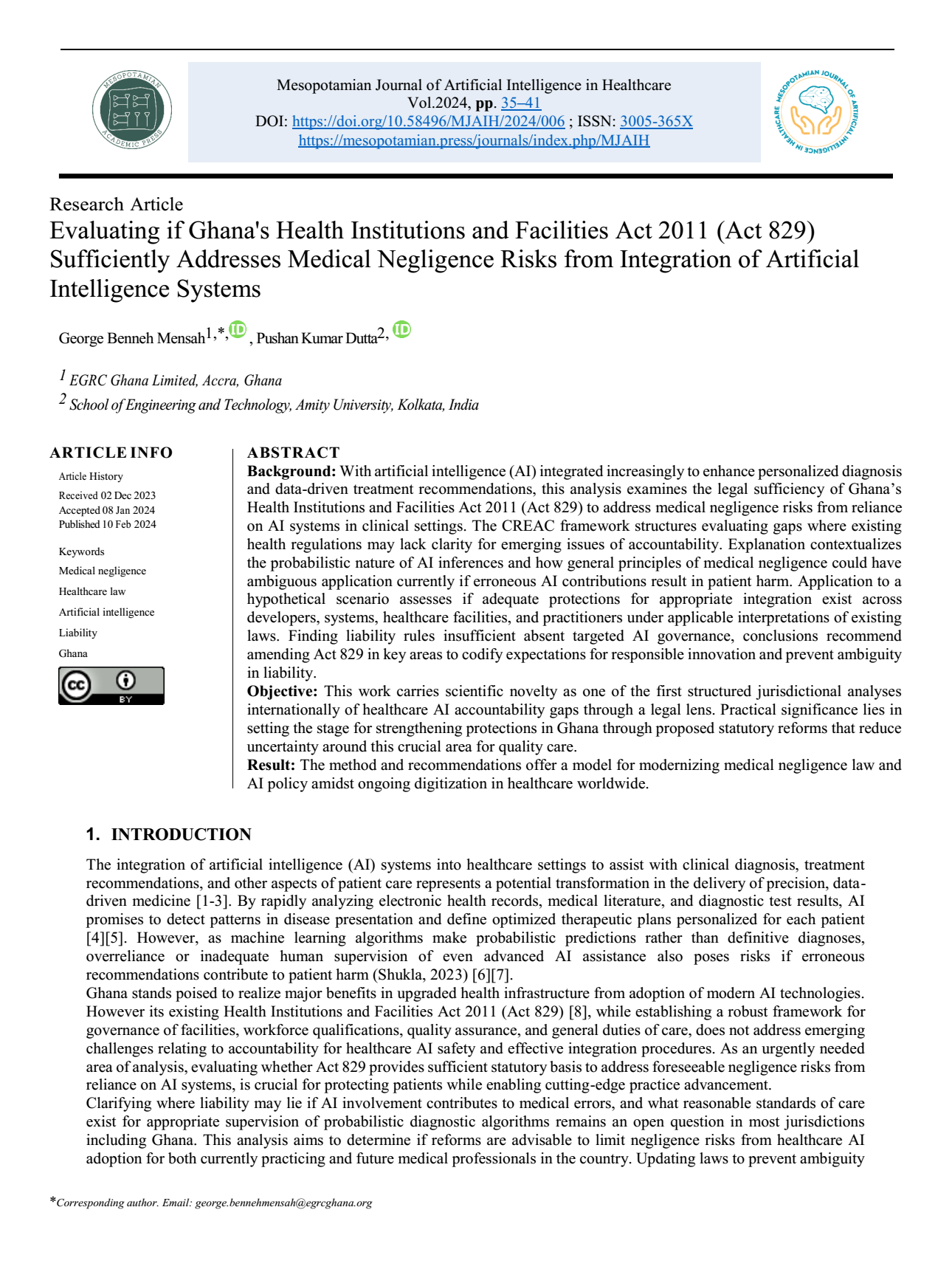Evaluating if Ghana's Health Institutions and Facilities Act 2011 (Act 829) Sufficiently Addresses Medical Negligence Risks from Integration of Artificial Intelligence Systems
Main Article Content
Abstract
With artificial intelligence (AI) integrated increasingly to enhance personalized diagnosis and data-driven treatment recommendations, this analysis examines the legal sufficiency of Ghana’s Health Institutions and Facilities Act 2011 (Act 829) to address medical negligence risks from reliance on AI systems in clinical settings. The CREAC framework structures evaluating gaps where existing health regulations may lack clarity for emerging issues of accountability. Explanation contextualizes the probabilistic nature of AI inferences and how general principles of medical negligence could have ambiguous application currently if erroneous AI contributions result in patient harm. Application to a hypothetical scenario assesses if adequate protections for appropriate integration exist across developers, systems, healthcare facilities, and practitioners under applicable interpretations of existing laws. Finding liability rules insufficient absent targeted AI governance, conclusions recommend amending Act 829 in key areas to codify expectations for responsible innovation and prevent ambiguity in liability.
This work carries scientific novelty as one of the first structured jurisdictional analyses internationally of healthcare AI accountability gaps through a legal lens. Practical significance lies in setting the stage for strengthening protections in Ghana through proposed statutory reforms that reduce uncertainty around this crucial area for quality care. The method and recommendations offer a model for modernizing medical negligence law and AI policy amidst ongoing digitization in healthcare worldwide.
Article Details
Issue
Section

This work is licensed under a Creative Commons Attribution 4.0 International License.
